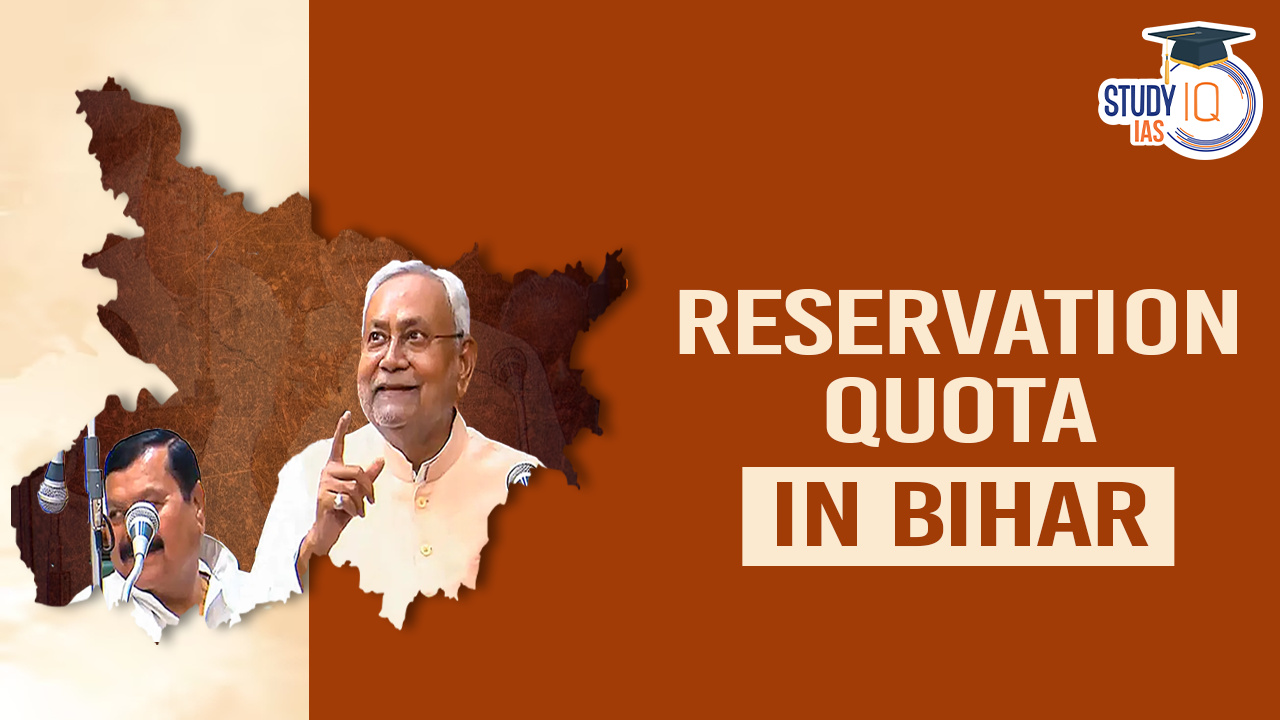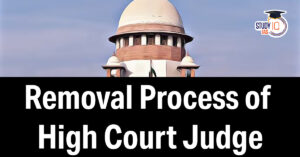Table of Contents
Context
- The Patna High Court set aside the Bihar government’s notifications that increased reservations in government jobs and educational institutions from 50% to 65%.
- The court emphasised that while reservations for backward classes aim to break the dominance of a few, merit cannot be completely disregarded. The 50% limit on reservations was established to balance these principles.
Patna HC Strikes Down Bihar’s Reservation Quota Hike to 65%
The Nitish Kumar Government in Bihar on November 21 last year issued a gazette notification for raising the Reservation quota for deprived castes from 50 to 65%. On the Patna High Court on 20th June 2024 set aside the amendments passed by the Bihar legislature in 2023 to increase the reservation Backward Classes (BC), Extremely Backward Classes (EBC), Scheduled Caste (SC) and Scheduled Tribe (ST) from 50% to 65% in educational institutions and government jobs.
History of the 50% Ceiling of Reservation Quota
Indra Sawhney Ruling (1992)
The Supreme Court introduced the 50% ceiling to ensure administrative efficiency.
- Key Points:
- Criteria for reservation were defined as “social and educational backwardness.”
- The 50% limit on vertical quotas, previously established in M R Balaji v State of Mysore (1963) and Devadasan v Union of India (1964), was reiterated.
- The limit could be exceeded only in “exceptional circumstances.”
- Despite reaffirmations in subsequent cases, states like Bihar have attempted to breach the limit, gaining political traction.
- For instance, during the Lok Sabha election campaign, Rahul Gandhi promised a caste census and reservations beyond 50%.
Legal Challenge to the 50% Ceiling
- Current Status: The 50% limit is under challenge in the Supreme Court.
- EWS Quota Exception (2019):
- In November 2022, a five-judge Bench upheld the 10% quota for Economically Weaker Sections (EWS) in a 3-2 verdict.
- Majority Opinion: The 50% ceiling applied only to SC/ST and OBC quotas, not to the EWS quota, which operates outside the “backwardness” framework.
- Minority Opinion: Cautioned against breaching the 50% rule, warning it could lead to further infractions.
Arguments and Perspectives
- Criticism of the 50% Ceiling: Critics argue that the ceiling is an arbitrary judicial creation.
- Support for the 50% Ceiling: Proponents contend that exceeding 50% would violate the principle of equality, as reservations are exceptions to the rule.
- Ambedkar’s View: Dr. B R Ambedkar cautioned that unchecked reservations could undermine equality.
- Reservation as a Fundamental Right: There is a view that reservations enhance the fundamental right to equality, supporting the idea of substantive equality.
Reservation Quota in Other States
- Tamil Nadu: The 76th constitutional amendment (1994) inserted Tamil Nadu’s reservation law, which exceeds the 50% limit, into the Ninth Schedule, providing it with judicial immunity.
- Maharashtra: In May 2021, the SC struck down Maharashtra’s law providing reservations for the Maratha community, stating the quota could not exceed 50%. Implementation of the Maratha quota would have increased reservation to 68%.
- Other States: Similar cases include demands for reservations by Patels in Gujarat, Jats in Haryana, and Kapus in Andhra Pradesh.


 Utkal Divas 2025: Odisha Foundation Day ...
Utkal Divas 2025: Odisha Foundation Day ...
 Transfer and Removal Process for High Co...
Transfer and Removal Process for High Co...
 List of Military Exercises of India 2024...
List of Military Exercises of India 2024...





















